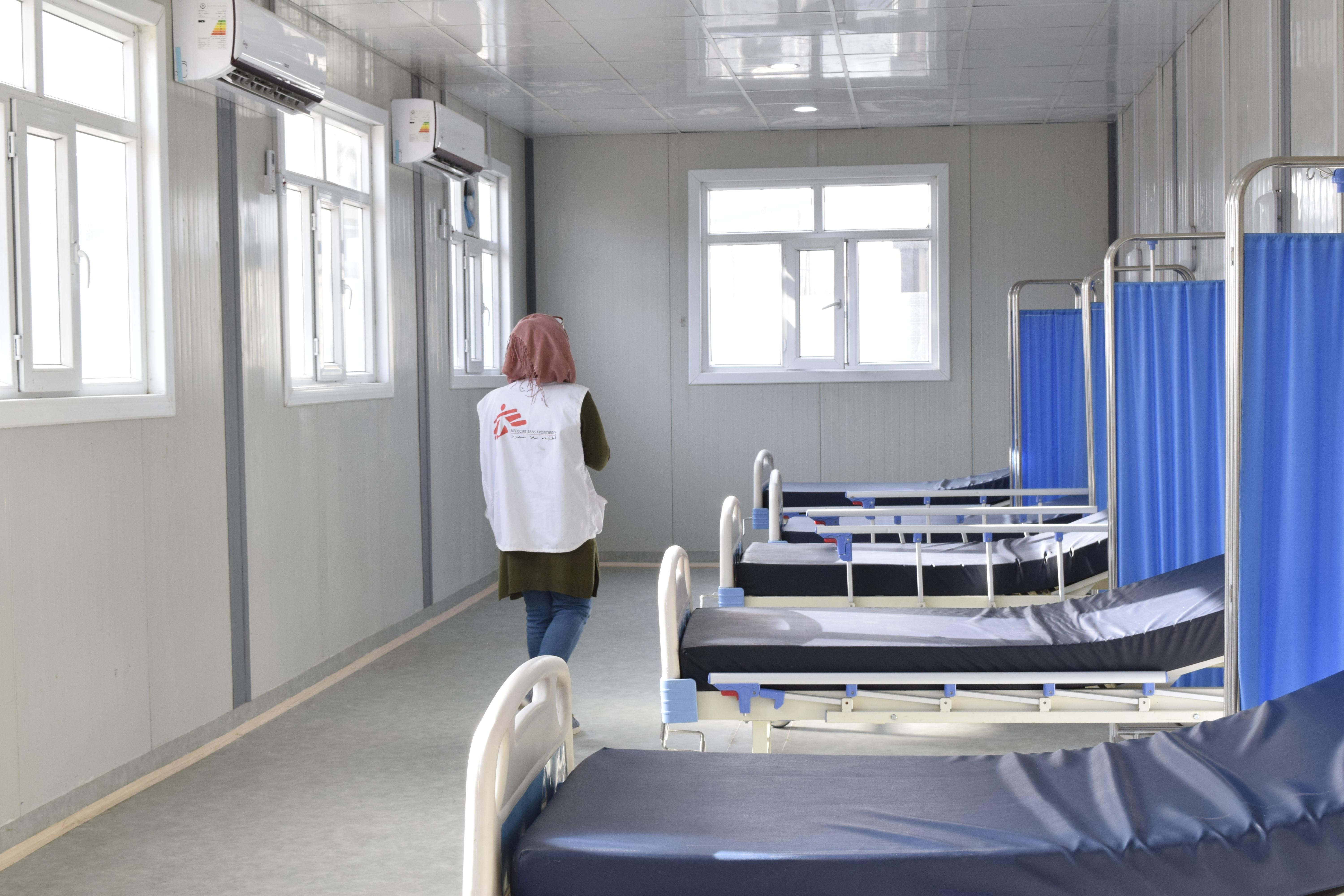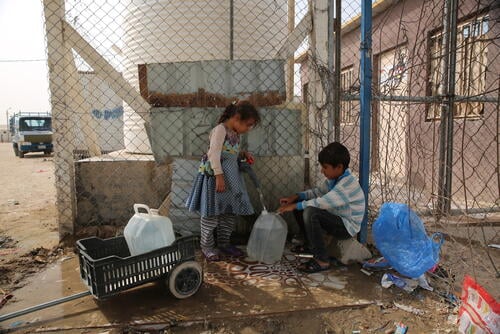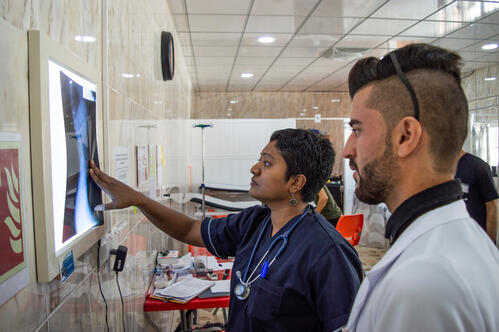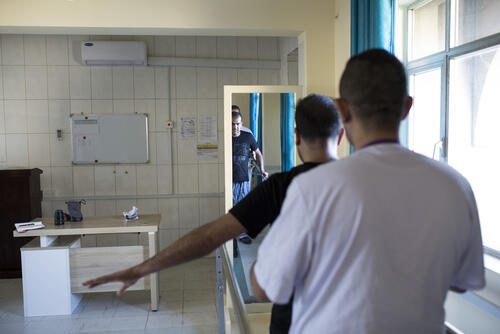Mosul -Médecins Sans Frontières (MSF) has completed the construction of a new emergency room (ER) in the Al ‘Salaam and Al’ Shifaa hospital complex in East Mosul.
MSF has been working in collaboration with the Directorate of Health in Ninewa governorate to provide Al ‘Salaam Hospital with a fully equipped and functional ER. This will increase the capacity of the health facility and improve access to high-quality emergency care for the population of East Mosul.
Al ‘Salaam hospital used to be the biggest hospital in the area before it was completely destroyed in 2017Kyi Htet Aung, MSF project medical referent
The ER includes two emergency wards for a total of 11 beds, a trauma room, a pharmacy, two consultation rooms, a triage area and a facilitated connection with the operational theatre. It’s currently receiving patients 24 hours a day.
MSF will assist further by providing medical training and donating drugs. Our teams will also support the Al ‘Salaam medical staff in managing emergency cases.
“The construction of this ER was extremely important for the population of east Mosul. Al ‘Salaam hospital used to be the biggest hospital in the area before it was completely destroyed in 2017, dramatically reducing the availability of and access to healthcare for this population,” explains Kyi Htet Aung, MSF project medical referent.
This is another important step for us in helping to rebuild the healthcare system in MosulMarco Doneda, MSF project coordinator
Before its destruction, Al ‘Salaam Hospital had a capacity of 400 beds and it was the main secondary healthcare facility in east Mosul. Now relocated into the Al’ Shifaa hospital complex, Al ‘Salaam Hospital has a capacity of 200 beds.
“The opening of the new ER in Al ‘Salaam Hospital is for us another important step to contribute to the rebuilding of the healthcare system in Mosul, profoundly damaged by the conflict. Nine hospitals have been completely destroyed during the fighting in Mosul and now there are less than 1,600 beds available for an estimated population of 1.7 million people,” says Marco Doneda, MSF project coordinator.
MSF has worked in and around Mosul since 2017 to provide lifesaving services for people caught in the violence.
The organisation ran several trauma stabilisation posts in east and west Mosul, and managed four projects in hospitals offering a range of services including emergency and intensive care, surgery and maternal healthcare.
In April 2018, MSF opened a comprehensive post-operative care facility in East Mosul, to provide services for people injured by violent or accidental trauma.
Médecins Sans Frontières (MSF) has been working in Iraq since 1991. With more than 1,500 staff in Iraq, MSF provides free, quality healthcare for all people regardless of race, religion, gender or political affiliation.
MSF delivers primary and secondary healthcare, services for expectant and new mothers, treatment for chronic diseases, surgery and rehabilitation for war-wounded, mental health support and health education activities. The organisation currently works in the governorates of Erbil, Diyala, Ninewa, Kirkuk, Anbar and Baghdad.
MSF is an independent medical humanitarian movement that aims to deliver emergency medical care where it is needed most, and when it will save lives. MSF works in nearly 70 countries around the world.
MSF offers neutral and impartial medical assistance regardless of race, religion, gender or political affiliation. To ensure its independence, MSF does not accept funding from any government or international agency for its programs in Iraq, relying solely on private donations around the world to carry out its work.







